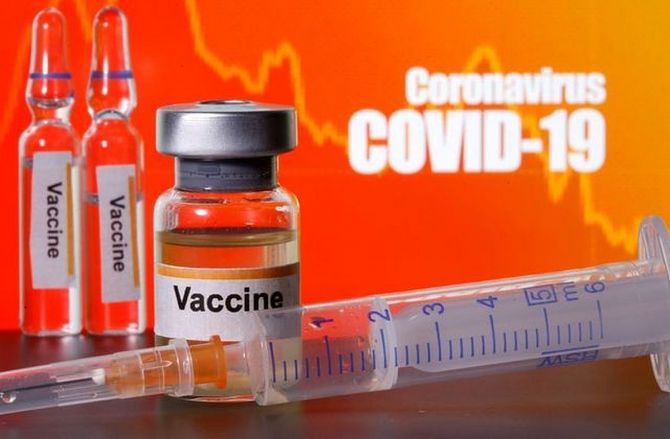The government is considering setting up air freight stations to enable direct movement of vaccines from pharmaceutical factories to the aircraft.

From reducing dwell time at airports to faster overflight and landing permits, India is planning regulatory changes to quicken the procedure of transporting vaccines for Covid-19 from and into the country.
The government is considering setting up air freight stations (AFS) to enable direct movement of vaccines from pharmaceutical factories to the aircraft.
An AFS is an off-airport cargo-handling facility that, apart from managing the goods for shipment, reduces congestion at the main airport terminal.
According to the plan, export and import clearances for cargo — including Customs activities like assessment, examination, and duty payment — will be provided at the AFS. It will be built near vaccine factories.
Companies in India like the Serum Institute, Bharat Biotech, and Zydus Cadila are in the process of manufacturing vaccines which, besides being used here, will be exported.
Other cross-border regulatory agencies such as the plant quarantine office and drug controller office will also be accommodated in the AFS.
This will cut down the dwell time, enabling a faster reach of vaccines to medical facilities.
Dwell time is what a cargo consignment takes to leave the airport premises after all Customs permits and security clearances have been obtained.
The dwell time at Indian airports is much longer than in other countries.
Logistics industry sources say at major Indian airports like Delhi and Mumbai, it takes more than 75 hours for a cargo consignment to get clearance.
It is less than six hours in airports such as Changi (Singapore), Dubai, and Hong Kong.
“We are discussing if it is possible to move vaccines directly from the factory to the aircraft.
"We are also discussing the concept and procedure with security agencies like the Bureau of Civil Aviation Security and Customs,” a government official said.
The official said it was “important to cut down the time between the vaccine leaving the factory and its getting into the aircraft”.
The government has formed a task force for administering vaccines to a large population by mid-2021, while keeping health care workers and front line warriors on priority.
A sub-committee of this task force is focusing on logistics, which will include building cold storage facilities and seamless transfers of vaccines from airports to vaccination centres.
If approved, the government-owned Airports Authority of India’s (AAI’s) subsidiary AAI Cargo Logistics and Allied Services Company may be tasked with building the AFS.
The task force has also asked the Directorate General of Civil Aviation to ensure a faster approval process for overflight and landing permits for foreign freighter jets carrying vaccines.
Timely regulatory approvals and storage and clearance by the Customs will be essential to facilitate the movements of vaccine, IATA said recently.
However, executives of private airports are learnt to have opposed the move.
“Commercial business viability would be a challenge for airport operators as well as for AFS operators.
"Both will offer similar services, leading to work duplication, impacting the viability of airports that have invested in building cold chains,” an executive of a private airport said.
India’s major gateway airports at Delhi, Mumbai, Bengaluru, and Hyderabad are privately controlled.
A spokesperson for GMR Group-owned Delhi Airport said it had two cargo terminals with temperature-controlled zones with separate cool chambers ranging from 25 degree Celsius to minus 20 degree Celsius.
“There are also cool dollies (containers with temperature-controlled systems) at the airside, which ensure unbroken cold chains during temperature-sensitive cargo movements,” the spokesperson said.
Tushar Jani, chairman of Cargo Service Centre (CSC), which operates the cargo terminal at Mumbai airport, said the facility could handle eight 747 freighters daily. CSC has the capacity to handle 25,000 tonnes per month and is ordering 10 additional cool dollies.
“We are ready to handle Covid-19 vaccine. Every day we handle 300 tonnes of pharma products, including 30-40 tonnes of vaccines,” Jani said.
The unavailability of storage facilities for vaccines developed by Pfizer and Moderna will make distribution challenging within India and will be a factor in selecting a vaccine by the government.
While the Pfizer candidate needs to be stored at minus 70 degree Celsius, the one by Moderna requires to be kept at minus 20 degree Celsius.
Vaccines manufactured by Indian companies are expected to have a storage requirement of 2-8 degree Celsius.
“Most of infrastructure here is geared to handle products in that temperature range,” Jani said.
Airlines in India are also scouting for alliances with local vaccine makers and building cold storage facilities.
Ajay Singh-owned SpiceJet, which is the only passenger airline to have freighter aircraft, is planning to set up cold chains and temperature-controlled warehouses.
"We have developed sufficient capacity for transporting Covid-19 vaccines,” an airline spokesperson said.
Photograph: Dado Ruvic/Reuters












 © 2025
© 2025